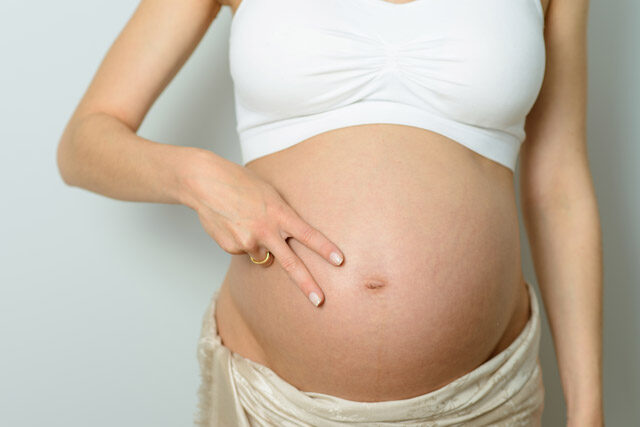The time for pregnancy is rarely perfect. When a woman is young, she might want to build a stable career first, gain some life experience and realize herself as a valuable specialist. Later in life, age-related changes in the body start appearing, making the woman think about the safety of an advanced maternal age pregnancy and possible complications.
It is a common belief, and people are often told that pregnancies after 40 are very risky and, thus, should be avoided. In reality, while reaching the age of 35 does add to the list of things to consider, there are many women over 40 actively and successfully trying for a child and giving birth to healthy babies.
Possible reasons for an advanced maternal age pregnancy
Every person has their own terms to start their road as a future parent.
- They want to have some financial stability. For someone, it can mean their own house suitable for children. For someone, having savings or establishing a trust fund. For someone, the reason will be a profitable career.
- Changing their mind about having children. No one lives their life without changing their opinion on something even once. The person may have been a child free who realized they actually want to try for a baby.
- Oftentimes, the person wants to get an experience that will be harder to have once you are responsible for a baby. This may include travel, expensive hobbies, or extreme sports.
- Unintended pregnancy that person does not want to terminate. As women in their early 40s are often believed to be infertile, they may give up contraception. Or their contraceptive method has failed.
How common is the pregnancy after the age of 40?
Since 1985, the birth rates among women whose age ranges between 40 and 45 have been rising. In fact, in 2018, for every thousand women of that age, approximately 12 babies were born. This means that this particular reproductive age is studied pretty well, and you can find all the data, services, and support you need.
The specifics of conception in your 40s
The more mature you are, the more changes happen to your menstrual cycle. The woman gradually runs out of eggs, which eventually leads to menopause and infertility. The closer you are to this stage, the fewer eggs you have, and additionally, they are harder to fertilize.
If the possibility of getting pregnant without consulting fertility specialists is about 60% in your 30s, by 39 years it drops to almost 13% and is on average 6.6% for women who are 44. If you are trying to conceive, you will probably need help from your physician and a reproductive endocrinologist. Your fertility treatment will largely depend on your health and the abilities of your body. This is why someone requires oral medication while someone has to rely on in vitro fertilization.
Pregnancy complications
Even with healthy pregnancies, your body goes through a cycle of changes and suffers a lot of pressure. By the age of 40, you probably have a list of risk factors that can make your pregnancy more difficult or even dangerous. These include:
- Unhealthy habits like smoking or drinking;
- Overweight;
- Chronic conditions that developed due to your age or lifestyle;
Even if you are fit and overall healthy, there are some pregnancy-related conditions that have a higher risk of manifestation when you are carrying a child in your 40s:
- High blood pressure;
- Osteoporosis;
- Gestational diabetes;
All of the above create an increased risk for you and your baby. Make sure you are talking to your doctor about every symptom that bothers you so you will not miss anything crucial.
Keeping the pregnancy
Every pregnancy has the risk of miscarriage. At the age of 40 and later, it gets boosted by chronic conditions the person suffers. The future mother may need constant medication or even be hospitalized to receive specialized care when the probability of pregnancy loss is too high. The good news is that proper prenatal care helps to detect those risks and prevent the worst outcomes.
Ensuring the health of the baby
Two major threats for a late baby are chromosomal conditions and birth defects. Genetic testing is recommended for every pregnant woman as it gives you a complete picture of your baby’s genetic health and allows you to detect such specific chromosome problems as Down syndrome, trisomy 13, and trisomy 18. It is specifically important for advanced maternal age pregnancies because, by the age of 40, the risk of having a child with Down syndrome is 1 in 100, according to the National Down Syndrome Society. And when the woman is 49, it skyrockets to 1 in 10.
Birth defects are developmental impairments that appear during the baby’s growth in the uterus. They depend on various factors, such as the mother’s vitamin deficiency, suffering infectious diseases, or taking specific medications. Most of them can be avoided by getting attentive health care and complying with the recommendations of your doctor. For example, neural tube defects that can seriously harm a baby’s spine and brain are mostly preventable with taking folic acid supplements.
The takeaway
Getting pregnant in your 40s is a decision that only you have the right to make. It may bring you to a new, exciting stage of life. Yes, an advanced maternal age pregnancy carries increased risks that you should take into consideration. But with thorough preparation, constant cooperation with your healthcare provider, and making healthy and responsible choices, you get a wonderful possibility to fully enjoy the role of the parent. Don’t hesitate to seek information, ask questions, and get both professional and emotional support and bear in mind that you do not have to be alone in your journey.




